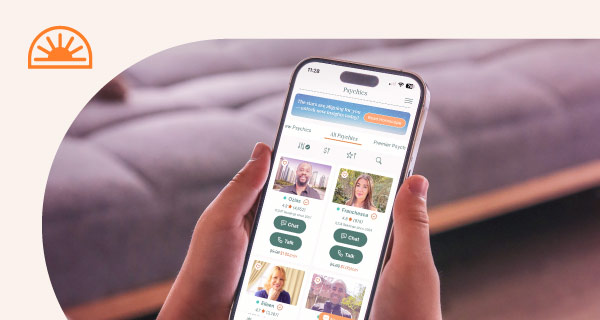“Soul friends” are among life’s greatest gifts, partly because soul friendships just aren’t as fraught with challenges as “soul mate” relationships can be.
True soulmates often have to overcome obstacles like family disapproval, substance abuse, early life traumas leading to emotional problems, existing marriages and even careless indifference on the part of one mate.
But soul friends always seem to appear magically just when you need them most. When no one understands or supports you, when you’re facing a challenge you don’t think you can handle alone, that’s when a soul friend will show up, just in time, with exactly what you need.
Related: Soul Mates Vs. Twin Flames
How Can you Recognize a Soul Friend?
Usually when you meet them, something inside of you smiles and says, “There you are! I’ve been waiting for you to appear!” That sense of delight and recognition happens for two reasons: first, because soul friends are almost always people you’ve known and cared about in many prior lifetimes, and second, because the two of you got together before you incarnated this time and decided when, where, how and why you’d meet, so you truly have been expecting them, and they you.
And soul friendships are always balanced. You’re there to help, motivate, support and unconditionally love each other equally, and, over time, you find you always receive as much as you give. Yeah, you’re both human, and occasionally there can be friction, but it rarely lasts.
Another giveaway that someone is a soul friend is that they understand something about you that no one else understands. You’ve been teased all your life for being too emotional? Your soul friend is either just as sensitive or sees your sensitivity as a gift that they admire and respect. Or you’re mystical and psychic, but from a family of pragmatists, and married to a pragmatist, and suddenly a soul friend who has even more far-out gifts than yours makes a special effort to meet and befriend you just when you’re about to go through major life changes.
There’s another kind of soul friend who isn’t as pleasant to acknowledge, although if you look back, you’ll probably remember having that same sense of recognition when you first encountered each other. This soul friend sees through your facades (i.e. also really understands you), and prods you to learn and grow by challenging your beliefs or pointing out where you’re achieving less than you can. This kind of soul friend pushes your buttons and sometimes makes you mad, but somehow you still admire and respect them. You even find yourselves motivated by the same kinds of goals, and discover you’re on the same page regarding what needs to be done so often it’s uncanny.
Related: Signs Your Soulmate Is On The Way
What Are Soul Friendships Like?
Soul friendships can begin in high school or grade school and continue throughout your life, or they can last just a few months or weeks before they’ve run their course. They can be in your age group, or much younger or older. Soul friends are sometimes lovers who help you recover from a divorce or abuse. Or you meet in a situation which requires exactly the skills and gifts that you have as a team, and you find yourselves working creative and/or organizational miracles, producing more work together than any ten individuals could do alone, and having an absolute blast while you’re doing it.
Soul friendships seem almost always to involve service, too, and often soul friends help each other clear karma by doing service projects together. You and your best friend from high school end up being the people everyone in your small town turns to for help and advice. Or perhaps a number of soul friends meet and are jointly inspired to create or expand an organization that serves a very timely need for hundreds or even thousands of people, helping others evolve or learn important new skills.
Soul friend relationships are life-affirming, positive and growth-oriented. They incorporate healing, expansion, inspiration and a sense of connection and bone-deep mutual understanding that is priceless. When you’re with a soul friend, your horizons expand, you realize that there’s more to you than you thought, and you suddenly discover you have more than enough energy, hope and motivation to meet any challenge life sends your way. And even when a soul friendship is short-lived, you’ll remember that friend with a smile for the rest of your life.
About California Psychics
California Psychics is the most trusted source of psychic readings. We have delivered over 6 million discreet and confidential psychic readings by phone since 1995. More than a prediction, we are your guide for life’s journey. Serenity, happiness, and success are just a phone call away. With over 400 psychics online to choose from, you’re sure to find the best psychics for you. Call one of our trusted and accurate psychics today! Confidential and secure, real psychics, accurate predictions, 100% guaranteed. 



4 thoughts on “The Meaning of Soul Friends”
I had a friend who I believe my soul mate although we have very opposite personalities. I had been a business woman, but having a family was always my intention and dream in life. She did not want to have children and is an AMAZING business woman and make sure that no one interferes with her finances. I, on the other hand have allowed my long time partners in my life to interfere with my finances which I felt, at the time, that it was not that important to me and I would somehow always land on my feet. I left myself a hard road to cross and I admire soooo much how she can separate the two. I am an empathetic person to a fault and she had a lot of anger issues and could find fault in anyone she felt was standing in her way. Because of our differences, I was able to see a different way of looking at things and I learned about the strength of how important it was to put yourself first. We have known eachother since high school. Because of our misunderstand, she will no longer speak to me. Throughout the years I have tried many ways of reaching out but she will not longer allow me to be part of her life. Five years ago, my husband died and it was just myself and my 8 year old son. To my shock, she contacted me and told me how sorry she was that my husband died (she, myself and my husband were very close and my husband also considered her a friend.) At this time I thought we would to share our lives together as we once did but unfortunately, I was wrong. I think about her alot and to be honest I really don’t understand why!!!!! Just thinking about the history we have had together, and knowing that she no longer wants me to be part of her live makes me extremely sad. When people would say negative things about her, I would always explain her personality and that she had gone through a hard time as a youngster and tried to open a door for people to see that vonerable side of her that she guards so well. I miss her sooo much. I lost a husband, I am ill with several chronic illnesses and I wish I could talk to her. I feel soo alone
Amazing insight! I have two soul mates.
Each mate fits into the two main but distinctly different
soul mate descriptions.
Without realizing, I have only called them, my Best Friends.
I have lost contact with each soul mate but always magically reappear
in my life. My soul mate since middle school has had friction lasting
lasting years. we are finally reunited positively and now I have hope
that we will reconnect our soul mate joyously. I have been afraid of being
hurt again. now I can see the positive that she has given me
through the hurt. if she didn’t mean so much to me, our conflicts
wouldn’t break my heart.
I feel like mike is a true soul friend. His brother was my boyfriend, he passed away 2 years ago. Mike and I have been together since mike came to California for his brothers death. What’s hard is we did become romantic but I think it was just out of Lonleiness on both our parts. I truely love Mike bu he is a abusive man and he has actually been in prison for this. We have had a few bad incidents but he says he has calmed down a lot since us being together. He puls in and out of our friendship/relationship as he is pulling out right now I tell him I just want him happy so if leaving our home will make him happier he should go, sometimes he tells me he loves me as in a girlfriend but he thinks it’s wrong at times because he feels I am his brothers woman, but then sometimes he justifies it and says the bible says brothers should take care of a brothers woman/wife. I don’t know how to take all this but as his friend I feel I really just want him to be happy where ever he may be.
Pingback: Regain Your Balance After a Relationship Ends | California Psychics Blog